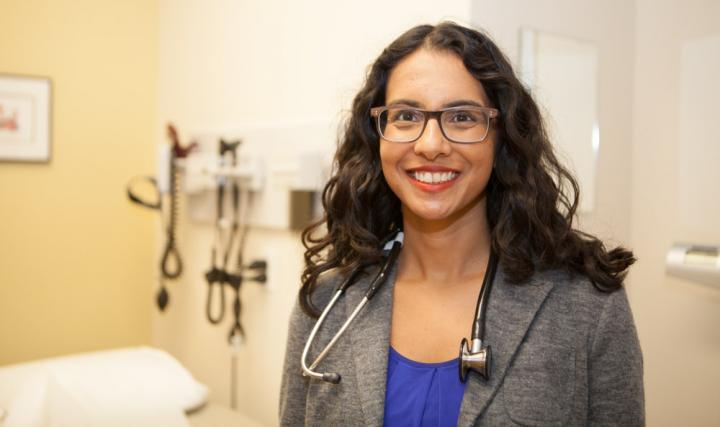Ontario patients and caregivers consistently prioritized insufficient publicly funded home care services as the gap in the health system that most needed to be addressed

Credit: Unity Health Toronto
Patients and caregivers from diverse backgrounds across Ontario consistently prioritized insufficient publicly-funded home care services as the gap in the health system that most needed to be addressed to improve their experience going home from hospital, according to research led by St. Michael’s Hospital of Unity Health Toronto.
The research, publishing on Jan. 6, 2020 in BMJ Quality and Safety, focused on understanding patient and caregiver priorities for improvement during the hospital-to-home transition and is based on input from over 700 participants over the course of 11 months in 2018.
The top three gaps in the system identified by patients and caregivers all related to home care services. Patients and caregivers reported not enough home care to meet the need, that home care support was not in place when patients arrived home from the hospital, and that they had to advocate for themselves to get enough home care. Other priorities related to being involved in discharge planning and once home, having a number to call if there was a problem.
“The transition from hospital to home is a tricky time for patients and caregivers, and if the appropriate supports are not in place, patients are at risk of experiencing poor outcomes,” said Dr. Tara Kiran, principal investigator of the study, who is also a family physician and an associate scientist with St. Michael’s MAP Centre for Urban Health Solutions.
The study was designed to inform the development of a quality standard for the province related to the transition from hospital to home. The work was done in consultation with a community advisory group that included patients and caregivers, as well as representatives from health service and community organizations.
The improvement priorities were consistent across multiple-subgroups in Ontario, including both patients and caregivers, males and females, rural and urban residents, pediatric and adult patients, as well as patients discharged to long-term care and elsewhere in the community.
“The engagement of patients and caregivers across the province over the course of this study was extensive,” said Dr. Kiran. “The findings are entirely based on the lived experiences and priorities of Ontario patients and caregivers, including groups we sometimes don’t hear from. It’s telling that patients and caregivers from such diverse backgrounds all wanted to see more publicly-funded home care”
Dr. Kiran said she hopes this work and the related quality standard can help guide Ontario Health Teams as they choose where to focus their improvement efforts.
“Patients and caregivers need to be involved in discharge planning, they need to know who to call when they run into trouble when they get back home, and most importantly, they need sufficient and timely home care supports.”
###
Full funding info:
Dr. Kiran is supported as a Clinician Scientist by the Department of Family and Community Medicine at the
University of Toronto and at St. Michael’s Hospital. She is the
Fidani Chair in Improvement and Innovation at the University of Toronto. Dr. Kiran is also supported by Health Quality Ontario and the Canadian Institutes of Health Research as an Embedded Clinician Researcher. This study was funded by the Embedded Clinician Researcher Award.
At the time of writing, DW, CK, GM, LP, and AL were all employees and TK an embedded clinician researcher at Health Quality Ontario.
Media Contact
Jennifer Stranges
[email protected]
416-864-5369




